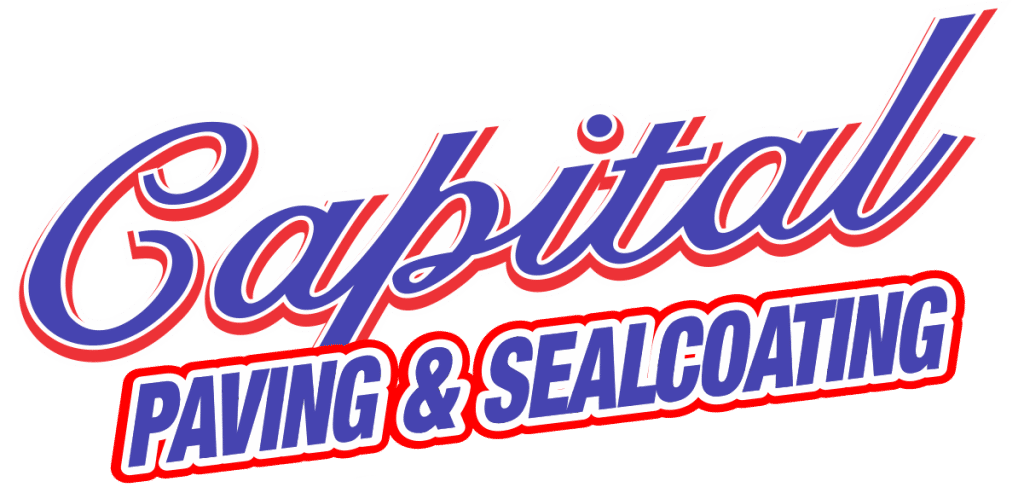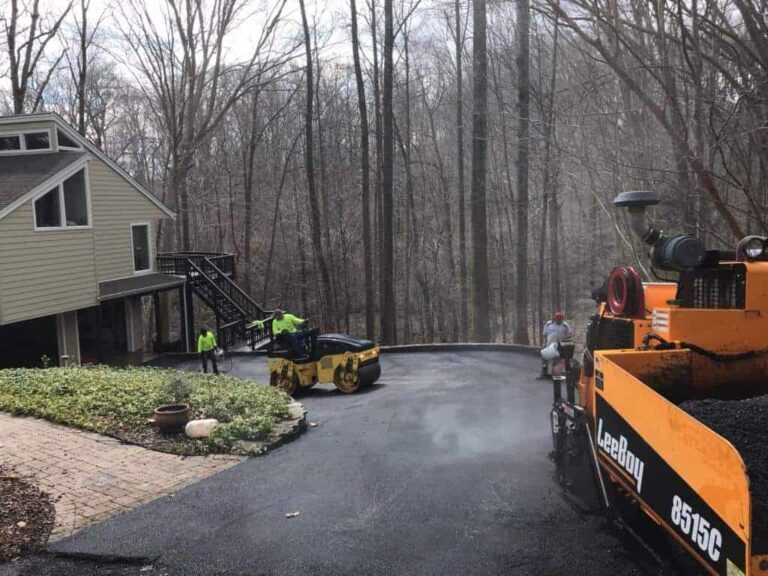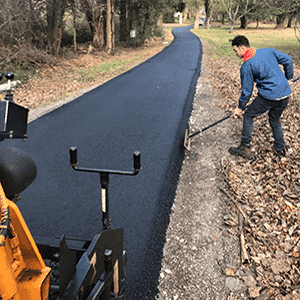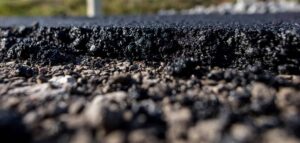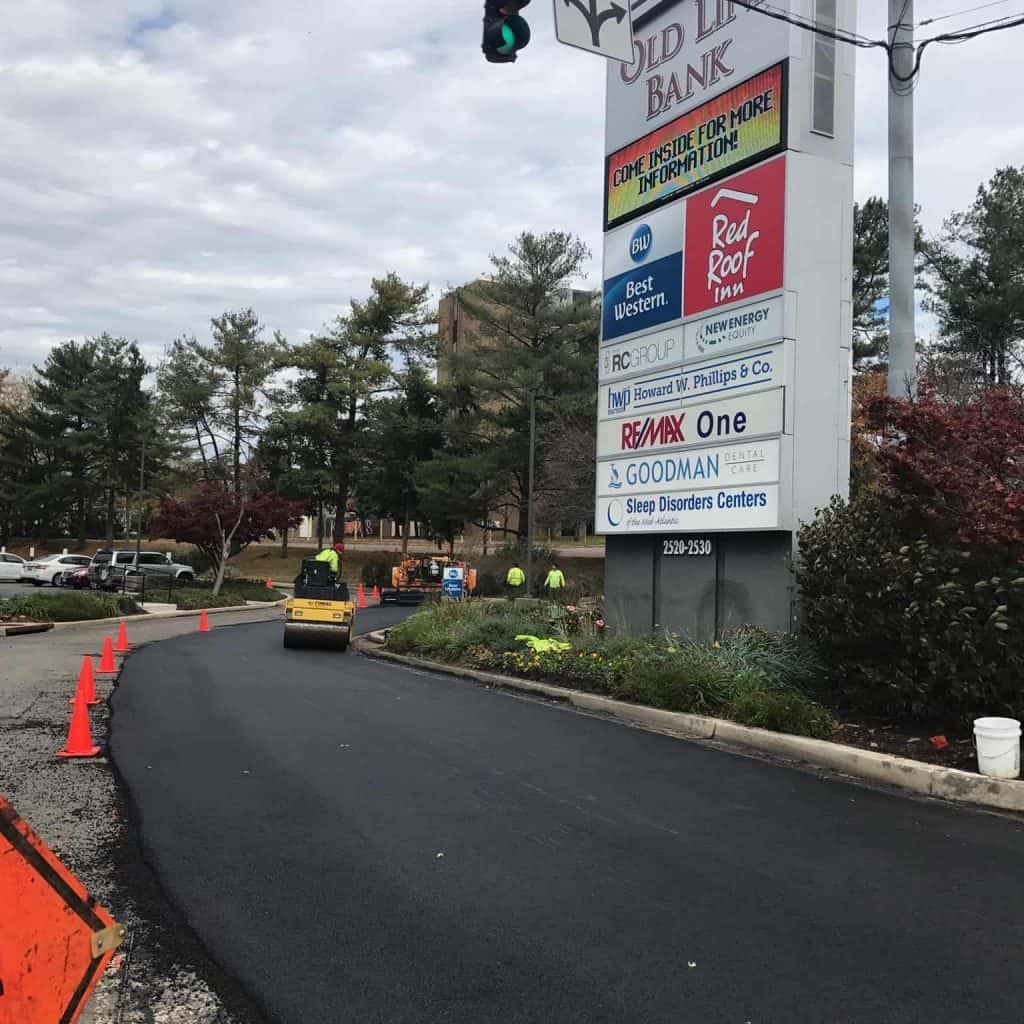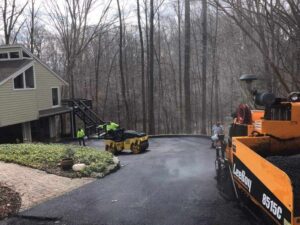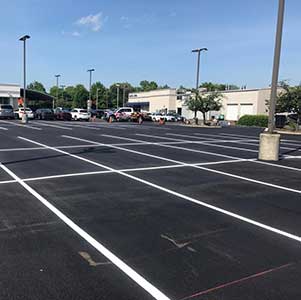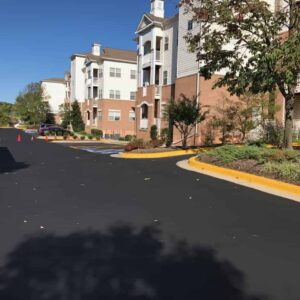Here at Capital Paving and Sealcoating, we strive to help our clients with all their paving projects. We also take pride in educating our clients so you and others can make informed decisions about what is best for your property. Today, we are going to answer one of our most-asked questions: “Is there a difference between asphalt and blacktop?”
The terms asphalt and blacktop are often used synonymously in the United States. They are quite similar, but there are a few differences between them.
What is Asphalt
Asphalt is the most common form of paving concrete we see daily as we travel on major highways and interstates, as well as commercial parking lots. Its materials are mineral aggregate, sand, and asphalt binder, a type of petroleum that is sticky, tacky, black, and semi-solid and holds everything together.
Once a roadbed has been created, asphalt is premixed within a machine and poured into the waiting area. After it has been poured, it is compacted using a heavy piece of machinery called a steamroller. This creates a smooth, durable, and quiet surface for vehicles of most types to travel on.
The smooth surface of asphalt benefits both motorists and neighborhoods. It reduces the wear and tear on a vehicle’s tires, saving the driver money. Consequently, it also reduces noise in neighborhoods due to its smoothness.
Depending on weather conditions, asphalt can be driven within two days after being applied to a roadbed.
Asphalt’s lifespan is typically upwards of 20 years if regular maintenance is performed. The initial investment pays for itself over time, and it is the best option for most paving projects, both residential and commercial.
What is Blacktop
As the name suggests, blacktop is a rich black, like asphalt. It is a form of asphalt paving concrete.
It, too, is comprised of the same materials as asphalt, but the mixture is slightly different. Blacktop’s mixture contains more stone than traditional asphalt concrete. Because it contains a higher mixture of stone, it also must be heated to a higher temperature before being laid down. The blacktop must be heated to around 300 degrees.
Once poured into the desired area, it is left to cool and harden. As it cools, the asphalt binder hardens and acts like a glue for the stones, keeping them together.
Nevertheless, blacktop does not hold up as well as asphalt regarding constant traffic. It is commonly applied to playgrounds, residential driveways, and lower-trafficked streets. It is still durable for light use but not designed for heavy use.
The higher stone mixture also affects the cost of a blacktop application, making it less expensive than asphalt. If you are planning to pave your driveway or other private road, blacktop is an excellent economical solution for residential property owners.
Additional Benefits of Asphalt and Blacktop
Paving any road or drive is beneficial. It adds value to your property while also cutting down on dust. Unpaved roads can create many issues, from dust to turning into slick, mud-rutted rivers during seasons of heavy precipitation. Paving allows the water to travel into pre-determined areas away from your road or drive.
In the winter months, having either asphalt or blacktop is also an added benefit. The fact that both have a deep, rich black color means they can quickly soak up the sun’s rays, heating up quickly and helping snow and ice melt for safer travel. Both smoother surfaces also allow for quieter travel, eliminating much of the noise vehicles create as they move.
Although asphalt and blacktop are often referred to as the same thing in the States, there are subtle differences between them. However, choosing to pave with either will benefit both residential and commercial clients. Capital Paving and Sealcoating are professional-quality paving contractors located in Anne Arundel County, MD. We are happy to assist you with all your paving needs. Contact us for an estimate today!
